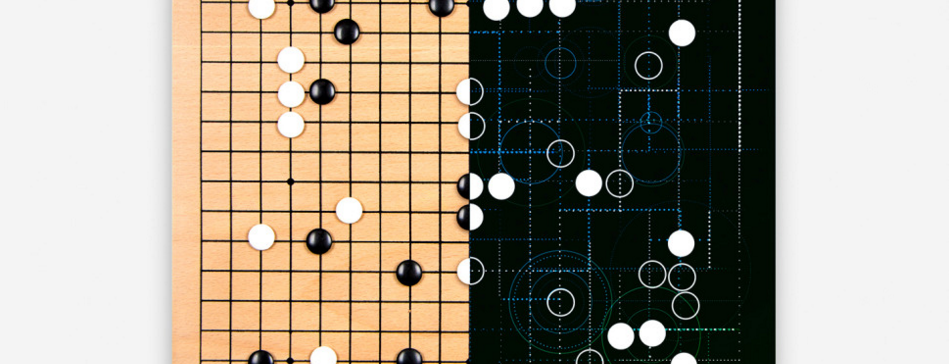News about a supercomputer beating a human at a board-game doesn’t quite capture the public imagination like it used to. A lot was made of IBM’s computer, Deep Blue, being able to beat chess champ Garry Kasparov in 1997; Newsweek ran a cover article with the title, “The Brain’s Last Stand”, the New York Times ran a piece “One Man, One Machine”, and the Wall Street Journal was awed by how much attention IBM was able to garner with the event. There was a sense among those covering the story that a computer being able to master a game like chess was the modern day version of the story of John Henry, man vs. tech.
Now nearly twenty years later, news that Google’s Go-playing-computer dubbed AlphaGo has beaten the three-time European Go champion, Fan Hui, reads more like a natural progression – an unsurprising next step in a world in which technology is increasingly capable. In an era where you can use your phone to guide yourself through a foreign city, order you some food, and set up a date, is it really that shocking that a computer can defeat champion players of a board-game?
Maybe not. At least not until you look more closely at the unique and complex aspects of Go.
The point of the centuries old two-player Chinese boardgames is relatively simple; control more territory than your opponent before you both run out of places to move. Played on a 19×19 grid, each player takes turns placing their white or black stones on the board. Once a stone is placed, they cannot be moved unless surrounded orthogonally by an opposing players stones. The game is over when there are no longer any moves to be played, and the score is then tallied up.
The amount of options a player can choose from is actually so large that the team at AlphaGo decided that it couldn’t run through all the possible plays with ‘brute force’ computing. What the researchers ended up building was an advanced search tree combined with two different ‘neural’ networks in AlphaGo, a policy network, and a value network.
After running this network through a kind of training – where it played itself and learned from 30 million moves from games played by human experts, AlphaGo now makes decisions based on something that resembles imagination. Nature reported that Fan, the European champ who lost to Google’s AI, couldn’t distinguish between AlphaGo and any other player, “If no one told me, maybe I would think the player was a little strange, but a very strong player, a real person.”
In an interview with Nature Magazine, the publication that published the Google Deep Mind (the A.I. Division at Alphabet) groups paper on their website, the CEO of Google DeepMind Demis Hassabis made the argument that the games we play are all in some way parts of everyday life cordoned off and given a specific set of rules. By extension, he continued, teaching a computer to play these games proficiently is in some way to teach a computer how to live and think independently.
Google claims that the technologies developed in the process of building AlphaGo may help us better map climate change and or understand complex diseases. They’re not alone in this endeavor to develop artificially intelligent software either. Facebook has its very own artificial intelligence team, and the industry stalwart IBM hasn’t let up on its own investments into these technologies either. We see the fruits of this labour pretty much whenever we use our smartphones, browse the web, or just check up on friends and family on Facebook. This technology is real, and as AlphaGo would suggest, it is getting better all the time. Yet, with each improvement Google and groups like it make with their A.I. systems, the closer we get to an unsure and potentially morally fraught future.
Stephen Hawking, the famed physicist said in an interview with the BBC that the development of artificial intelligence could spell the end of the human race. Elon Musk, the founder of Tesla Motors voiced similar concerns saying in an interview at the AeroAstro Centennial Symposium at MIT that artificial intelligence is “our biggest existential threat.” Yet while these two famous and highly regarded people are concerned about what A.I. isn’t an entirely cohesive one. On one hand Hawking is concerned about artificial intelligent machines turning against us, while Musk is afraid that this technology will be held in the hands of the few and not democratized.
So for all the concern about the threats A.I. might pose, it’s somewhat hard to take these warnings to heart. They’re strongly felt, but relatively opaque concerns about a far off future. Even if we were to take the warnings of Hawking and the like seriously, does that mean we stop advancing this technology and pushing the boundaries of our own technical expertise?
What seems more likely is that we keep sprinting towards an uncertain future, just like we’ve always done.
AlphaGo is scheduled to play the world champion, Lee Sedol, this coming March.

